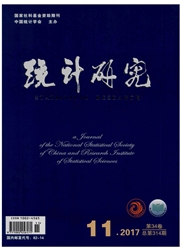

 中文摘要:
中文摘要:
本文构建了中国的能源环境CGE模型,在模型中引入环境反馈机制,详细划分能源部门,并利用该模型模拟分析减少重工业出口退税、征收化石能源从价资源税以及经济结构变动的节能减排效果和宏观经济影响。基于数量模拟结果,本文认为征收化石能源从价资源税是节能减排的一个有效途径,但由于其对宏观经济也将造成较大负面影响,其征收必须结合各种补贴形式,同时必须建立一个合理透明的能源价格机制。另外,中国必须长期有步骤分阶段地降低重工业比例,提高第三产业比例,短期内可逐步取消重工业的出口退税。
 英文摘要:
英文摘要:
This paper develops an energy and environmental CGE model of China, in which the environmental feedback is introduced and the energy sector is subdivided in detail. With the CGE model, this paper simulates the impacts of reducing expert tax rebates of heavy industries, levying ad valorem resource tax on fossil fuels and adjusting economic structure on energy conservation, emission reduction and macroeconomie. Based on the quantitative simulating results, this paper concludes that levying ad valorem resource tax on fossil fuels is an effective way for energy conservation and emission reduction, however it also brings a large negative influence on macroecouomic. So, levying ad valorem resource tax must be companied with various subsidies and a more transparent energy price meehanism must be constructed at the same time. Besides, in the long run, China should reduce the proportion of heavy industry and increase the proportion of tertiary industry gradually ; and in the short run, it is feasible to abolish the export tax rebate of heavy industries.
 同期刊论文项目
同期刊论文项目
 同项目期刊论文
同项目期刊论文
 期刊信息
期刊信息
